Have you ever wondered how long can a horse lay down before it dies? Horses are majestic animals that have been domesticated for centuries. They are known for their strength, grace, and speed, and are often used for transportation, work, and competitive sports. However, like any other living being, horses require rest and sleep to maintain their health and well-being.
In this article, we will explore the importance of rest for horses and answer the question of just how long a horse can lay down before it reaches a critical point.
Seemore: Can Horses Eat Grapes? – All Important Things You Should Know
Contents
How Long Can a Horse Lay Down Before It Dies?
As mentioned earlier, horses spend an average of 15 hours per day sleeping or resting. However, there is no specific time limit for how long a horse can lay down before it dies. Horses are intelligent animals that know when they need to get up and move around to avoid any negative effects from laying down for extended periods. https://hearttohorses.com
How Long Can Horses Lay Down?
However, it is essential to monitor a horse’s laying habits and make adjustments if necessary. If a horse is consistently laying down for longer periods than usual, it may be a sign of underlying health issues or discomfort. In these cases, it is crucial to seek veterinary attention to prevent any potential problems.
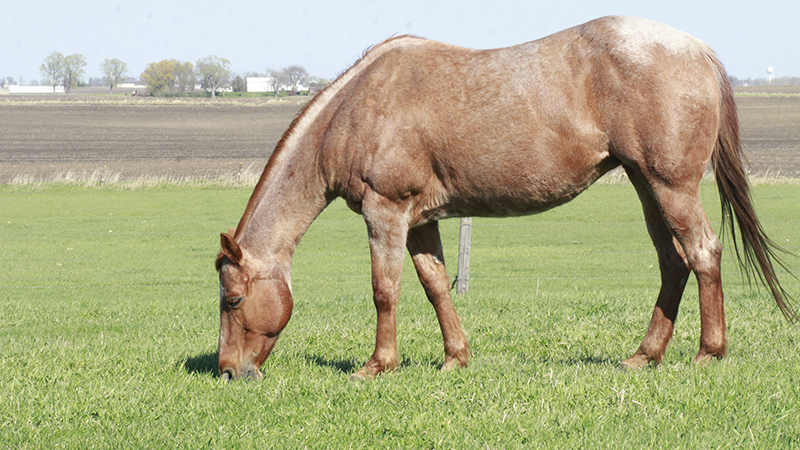
The Importance of Rest for Horses
Just like humans, horses need sufficient rest to perform at their best. In fact, horses spend an average of 15 hours each day resting or sleeping. Horses have a unique ability to sleep both standing and lying down. However, unlike humans, horses do not enter deep sleep (REM sleep) while standing. Instead, they can only reach light sleep (Non-REM sleep) while standing. For deep, restorative sleep, horses need to lie down.
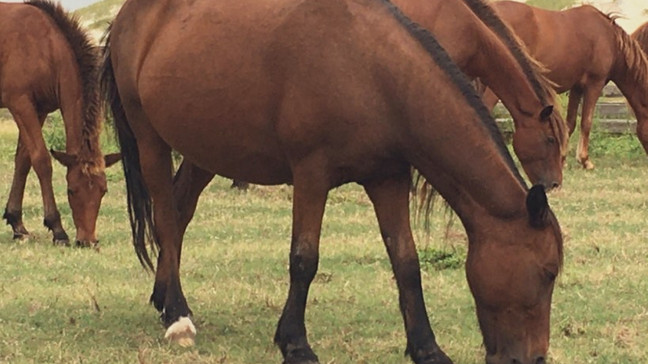
Rest is vital for horses as it helps regulate their body temperature, blood flow, and muscle recovery. When standing for long periods, the horse’s leg muscles become fatigued from weight-bearing. Laying down allows these muscles to relax and eases strain. Moreover, when a horse lies down, blood circulation to the legs improves, which reduces swelling and promotes healing. This is particularly important for horses that engage in physical work or competition.
Factors Affecting How Long a Horse Can Lay Down
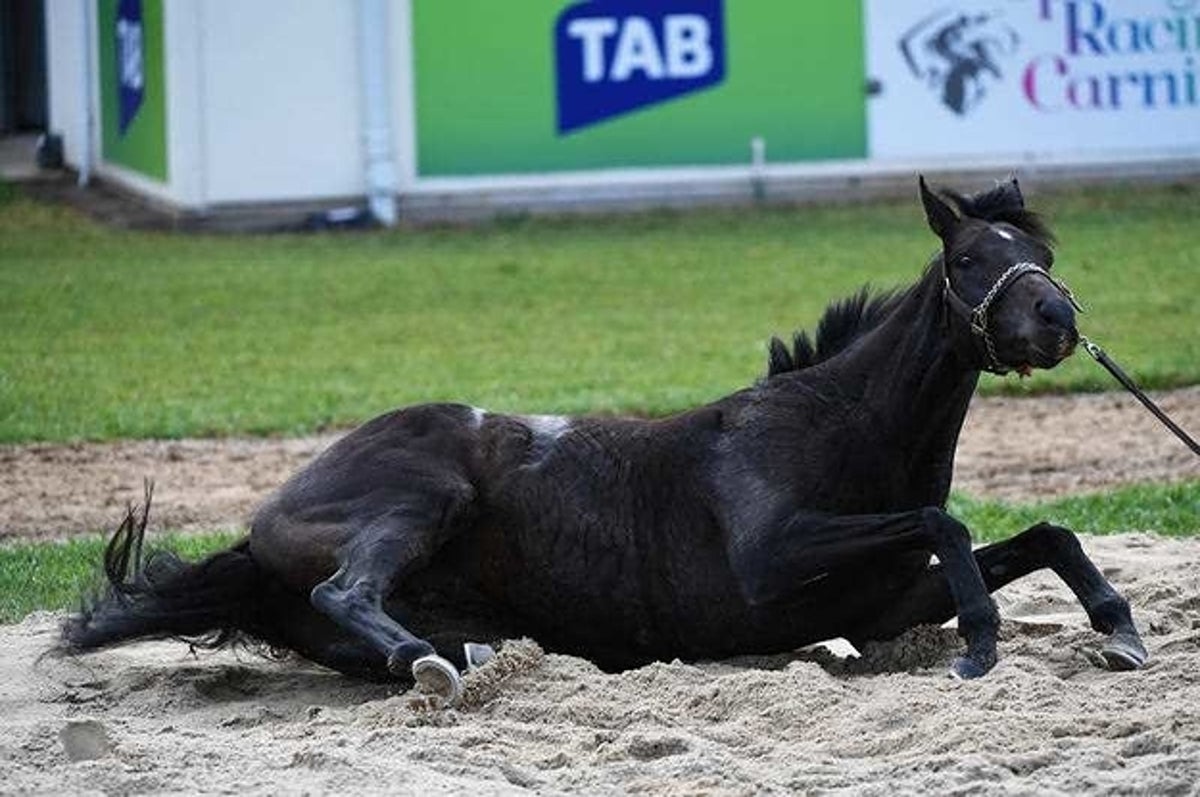
Several factors influence how long a horse can safely lay down, including age, health, and environment.
Age
Younger horses, especially foals, can lie down for longer stretches without harm, as their bodies are still developing and require more rest for growth. In contrast, older horses may struggle to rise due to joint stiffness or muscle weakness, making it harder for them to lay down and stand up. Therefore, older horses may need to rest more frequently in shorter bursts to avoid discomfort.
Health
A horse’s health is another crucial factor in its ability to lay down. Sick or injured horses might find it difficult to lay down due to pain. Some conditions, like colic or laminitis, can cause horses to lie down more often. In these cases, it’s essential to address the underlying health problem and ensure the horse can rest and recover.
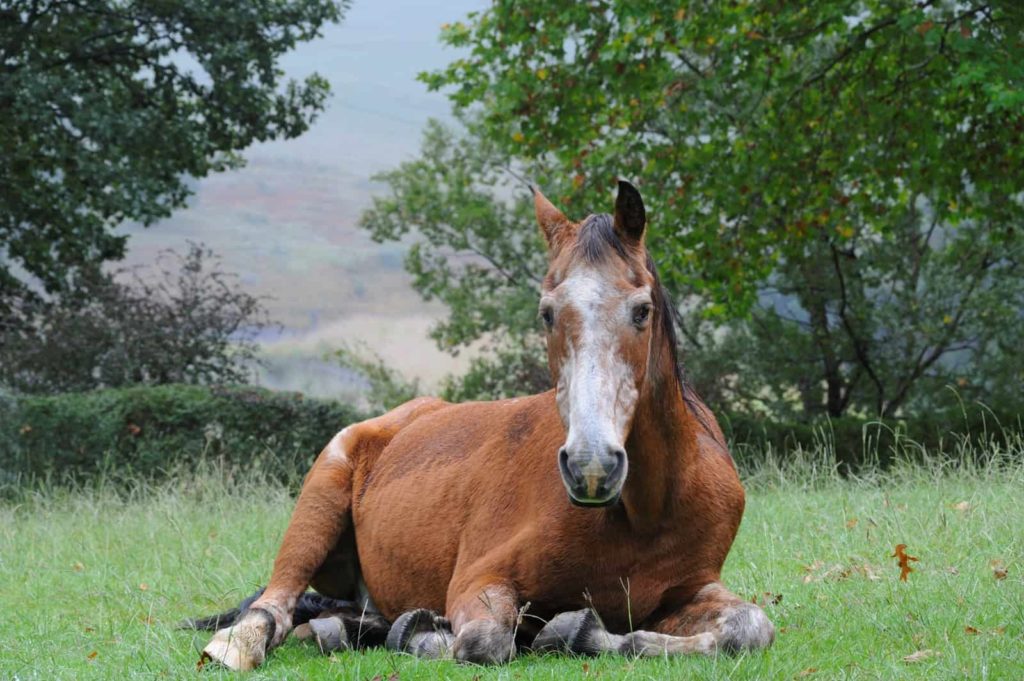
Additionally, certain medical conditions such as colic or laminitis can cause horses to lay down more frequently than usual. In these cases, it is essential to monitor the horse’s laying habits and seek veterinary attention if necessary.
Environment
The environment plays a significant role in a horse’s ability to rest. Horses kept in small enclosures or stalls may not have the space or suitable conditions to lie down comfortably. This can lead to a decrease in resting time, causing fatigue and a higher risk of injury. Providing horses with open pastures and soft bedding is crucial for their physical and mental well-being.
FAQs
1) Can horses sleep standing up?
Yes, horses can sleep standing up, but they do not experience deep sleep (REM sleep) while standing. They need to lie down to achieve REM sleep and fully rest.
2) How often should a horse lie down?
Horses should lay down for at least 30 minutes daily to allow for proper rest and recovery. The frequency and duration of laying down depend on the horse’s age, health, and environment.
3) Do horses dream?
Yes, horses do dream, but they only reach REM sleep when lying down. Therefore, they are most likely to dream during their time resting on the ground.
4) What should I do if my horse is struggling to lie down?
If a horse is having trouble laying down, it could indicate underlying health issues or discomfort. It’s crucial to seek veterinary attention to address the issue and ensure the horse gets the proper rest.
5) Can a horse die from laying down for too long?
There is no specific time limit for how long a horse can lie down before it becomes fatal. However, excessive laying could signal health problems, and it’s important to monitor a horse’s habits and consult a vet if needed.
6) Is it bad for a horse to lie down?
No, it’s completely natural for a horse to lie down, as it allows them to rest and sleep. However, if a horse lies down for extended periods and seems ill, it’s a good idea to consult a veterinarian for advice.
Conclusion: How Long Can a Horse Lay Down Before It Dies?
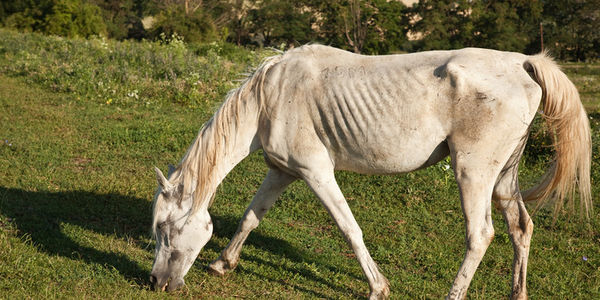
In conclusion, rest is vital for a horse’s physical and mental health. Horses need time to lie down and achieve REM sleep for complete rest and recovery. Factors such as age, health, and the environment affect how long a horse can safely lie down before reaching a critical point. As responsible horse owners, it’s essential to observe our horses’ resting behaviors and provide an environment that supports their overall health and well-being.
